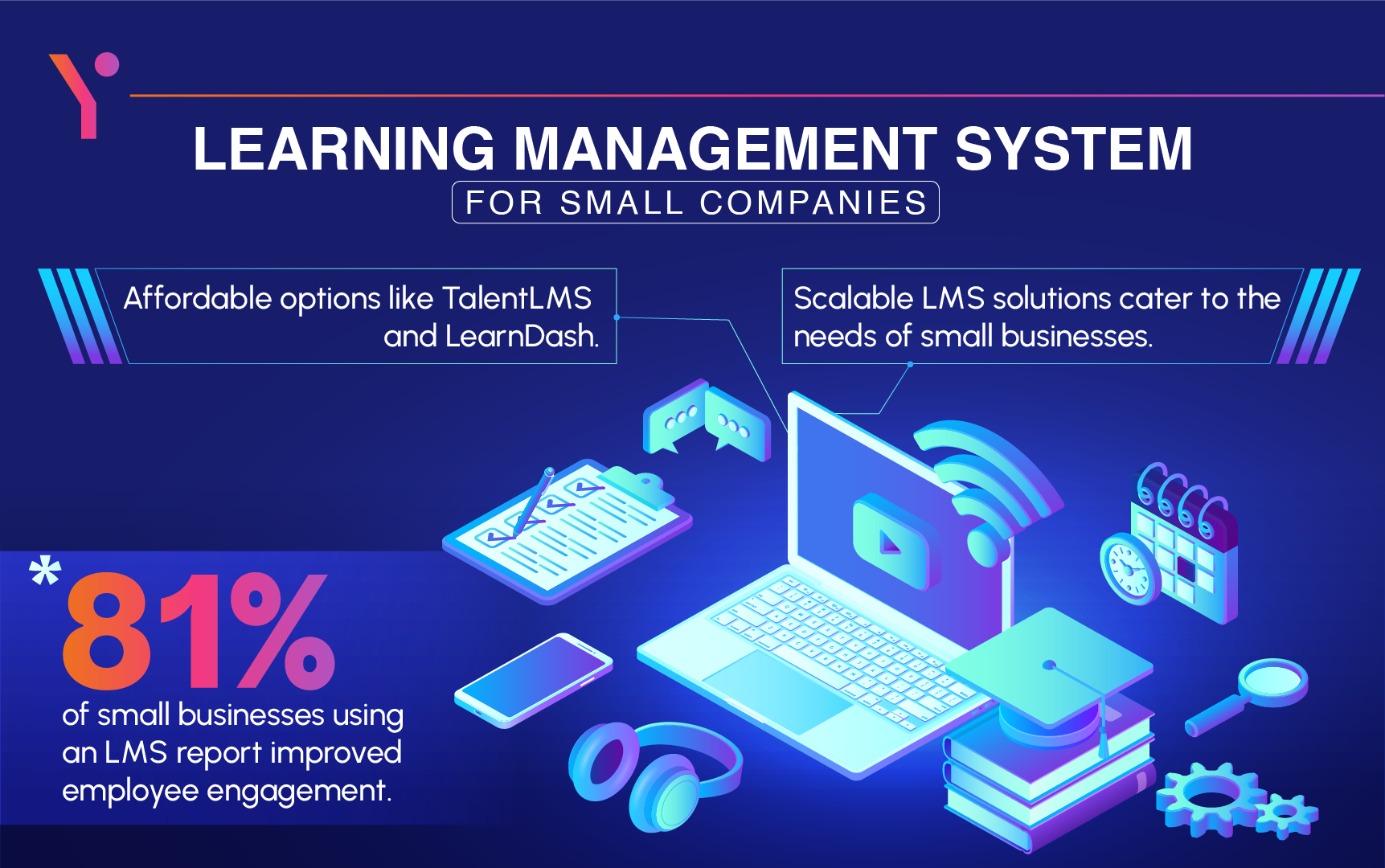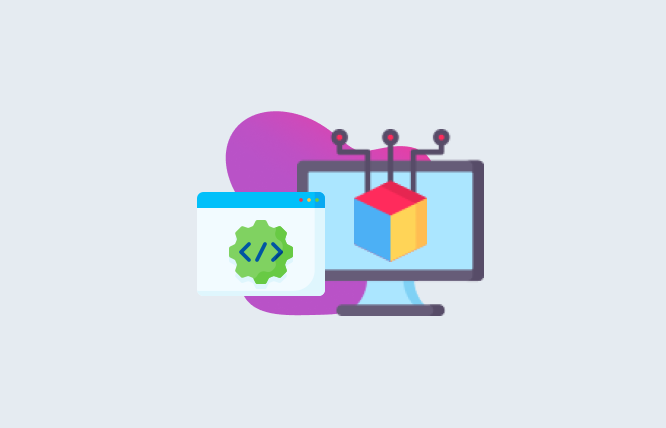A learning management system for small companies is vital for employee development. By thoughtfully opting for a platform with important features such as analytics, course delivery, and content management, small businesses can boost employee engagement, improve training effectiveness, and drive organisational growth.
Reliable learning management systems for small companies should give priority to affordability, essential functionalities, and user-friendliness. An intuitive and clean interface is vital for effortless navigation for employees with different levels of tech-savviness.
Flexible pricing plans that accommodate the different budgets and needs of small businesses are important. Let’s look at a table that emphasises the features of a quality learning management system for small companies:

| Feature | Significance for Small Businesses |
Integration capabilities with different tools | Streamline data management and workflows |
Mobile optimisation and accessibility | Permit learning anywhere, anytime |
Detailed analytics and reporting | Gain insights into ROI and training effectiveness |
Effective course creation and delivery tools | Present a host of training formats and track progress |
Durable content management | Efficient organisation and creation of training materials |
Affordable pricing | Flexible plans to fit budget constraints |
User-friendly interface | Effortless navigation for every employee |
If you want further details about any point in this table and how it can benefit your business, feel free to contact FuturByte. We are a renowned LMS software development company that will give you the best advice. You may also inquire about related concepts, such as training software for small companies.
The emphasis of this blog will be on what features make some of the best LMS present today. Keeping this on a note, let’s take a deep dive into the features that make a quality learning management system for small companies:
LMS Features – A Deep Dive
Let’s take a deep dive into our key topic:
Course Tracking and Delivery
Any good quality learning management system for small companies must support a host of delivery methods. Instructor-led training, self-paced learning modules, and mixed approaches serve a host of learning styles. Additionally, gamification elements may enhance both motivation and engagement. Detailed reporting and tracking features are vital for monitoring learner progress, identifying training gaps and generating completion certificates.
If you are interested in learning more about how the delivery methods can best serve your organisation, then feel free to contact FuturByte. We are a reputed HRMS development company that will offer you excellent advice here. You can also inquire about a host of associated concepts, such as cloud-based LMS.
Content Management
Today’s industry experts argue that effective content management is the base of a successful learning management system for small companies. The platform should permit effortless creation of a host of content formats, including interactive elements, videos & text. Built-in authoring tools and templates can play a vital part in streamlining content development. A reliable asset library assists in efficiently organising and reusing training materials.
Analytics and Reporting
Data-driven insights are important for the optimisation of training initiatives in a learning management system for small companies. Important metrics to track include quiz scores, time spent on courses, and completion rates. User behaviour analysis assists in understanding learner preferences and engagement levels. The measurement of training effectiveness against business outcomes is vital for demonstrating ROI.
Today, industry experts are of the view that analytics and reporting can do wonders for businesses present across industries. If you want to know more about this, then contact FuturByte. We are a famed custom ERP software development company that will offer you great informational aid. You can also inquire us about points such as cost-effective learning systems.
Selecting the Right LMS for your Small Business
If you are looking to get the best learning management for your organisation, it is important for you to take into account your organisation’s technical expertise, training goals, budget, and size. Demos and free trials can assist with the evaluation of user experience and feature fit. Support services and implementation should be a part of the decision-making process.
When an organisation carefully selects and implements the right LMS, it can unlock the true potential of its workforce and enjoy sustained growth.
Additional Considerations
Take note of the following additional considerations:
LMS for Remote Teams
Let’s say that your company comprises a remote workforce. Consider features such as mobile optimisation, video conferencing integration, and asynchronous learning capabilities.
In the past, it was observed that primarily mid to large-sized companies focused on having LMS that supported remote teams. But today, it is quite evident that even small-sized companies are actively looking for an LMS that supports remote teams.
Perhaps you are associated with any such company that needs some beneficial advice regarding LMS or how it benefits remote teams. If this is true, then feel free to contact FuturByte. We are a reputed cloud pos software maker that will be of great help to you. You can also ask us regarding other important and related things, such as LMS for startups.
Free and Open-Source LMS Options
Go through today’s leading open-source/free options. However, you must be aware of the possible limitations in terms of support and features.
If possible, then you should try to take cues from your potential competitors in your industry. This may actually allow you to get a head start in your attempts to find the best possible learning management system.
LMS Trends
Keep updated on today’s leading tech, such as VR, AI, and microlearning, which may improve your LMS’s capabilities.
Remember that keeping yourself updated is actually a simple activity. You may just be required to go through the social media feed so that you are familiarised with what is happening. Besides this, it will be best if you subscribe to publications that actively publish news and updates regarding leading tech.
Furthermore, if you need an interesting take on such trends and what can benefit your organisation, feel free to contact FuturByte. We are a famed software developer that will be of great assistance to you. You may also inquire with us regarding today’s best learning management systems.
Concluding Remarks
Choosing the right learning management system for small companies is an extremely important decision that can prominently impact general employee development and organisational success as a whole. This is why, by carefully analysing factors such as affordability, user-friendliness, and essential features, today’s small businesses can come across an LMS that perfectly aligns with their particular needs.
Note that the best LMS is an entity that will deliver measurable results, drive engagement, and empower employees. Any investment in a reliable learning platform is not only an expense but a strategic investment in an organisation’s future.
If you are associated with a small organisation seeking the right LMS, you should seriously leverage the insights offered in this guide. This will allow you to make informed decisions and select an LMS that powers your small business to greater heights.
Some Words of Wisdom
If you think that you need to gain a better understanding of any of the points discussed in this blog, then feel free to contact FuturByte. We are a globally-recognised CMS development services provider that can be of great assistance to you. Also, you can inquire about today’s best learning management system for small companies.
Frequently Asked Questions
A learning management system is a software platform for the management and delivery of training. When we talk about small businesses, it offers a host of benefits, such as:
Employee development: Presents opportunities for career advancement and skill improvement.
Scalability: Evolves with the company, accommodating increasing training needs.
Cost-effective: Decreases training costs by removing paper-based materials and travel expenses.
Accessibility: Offers on-demand training, letting employees learn at their own pace.
Efficiency: Automates tasks, centralises training materials, and saves time.
Have questions or feedback?
Get in touch with us and we‘l get back to you and help as soon as we can!




